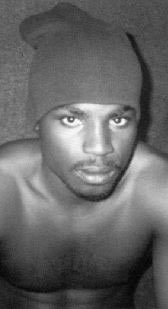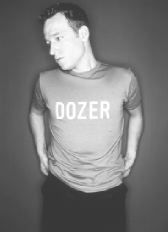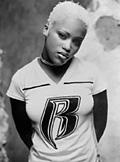IT’S UNCLEAR WHETHER, in this era of accelerated technology, it’s easier to create an album by a dead artist or a living one. Living ones are so fussy—they’ve got all these demands and expectations, and they’re always wanting to have another go at it, even when it’s clearly right the first time. Dead folks, sure they’re easier to work with, but who’s to say they’ve left behind anything of substance? After all, if it was so good, why didn’t they release it while they were alive (and do a video, naturally)?
The circumstances surrounding the passing of Biggie Smalls and Bob Marley were vastly different; in 1997, hip-hop icon Biggie was gunned down in a vicious assassination in Los Angeles, while the reggae patriarch survived an attempt on his life in 1976 only to succumb to cancer five years later. Each artist was crucial to the development of their genre: Marley solidifying the political potential of reggae music, and Biggie giving new birth to the rap storyteller.
Yet for a bard, Biggie told precious few tales. An on-the-spot songwriter cut down well before his time, his leftovers are scant, unlike fellow slain rapper 2Pac, who wrote lyrics copiously and recorded extensively before his death (Pac’s latest album, eerily entitled Still I Rise, was just released on Interscope). As a result, new, unreleased Biggie songs are hard to come by, meaning posthumous tracks have to be products of studio wizardry. Marley’s heirs have a far different problem. Two decades after the progenitor’s death, new Marley material is scarce, but rereleasing old material in a reworked form is practically sacrilegious.
But in death, it seems, both of these artists have been denied the dignity and grace they embodied during their lifetimes.
Bob Marley
Chant Down Babylon (Tuff Gong/Island)
The Notorious B.I.G.
Born Again (Bad Boy)
Chant Down Babylon is the attempt on the part of Marley’s family—his son Stephen is listed as executive producer—to extend his legacy into a new generation, and as such, slides Bob into bed with an array of urban B-listers. Nearly every song is sped up from its original tempo, replacing spacey, dubby ambiance with a far less measured cadence, more in time with the album’s guests than its inspiration.
And those guests are almost uniformly ill-chosen. From Krayzie Bone to Mr. Cheeks to Steven Tyler, the album is peppered with artists whose own musical relevance is pale to begin with and crumbles in the face of Marley’s potent vocal force. Even Erykah Badu, so beguiling on her solo album, sounds like a cheap backup singer next to Marley’s chants of “We don’t need no trouble, all we need is love” on “No More Trouble.” Chuck D’s turn on “Survival a.k.a. Black Survivors” is so brief he’s probably not collecting royalties for it, which is a shame, because of all the album’s guests, it’s Chuck who could most acutely render Marley’s pain. Instead, that burden is left to new Marley heir Lauryn Hill, who turns “Turn the Lights Down Low” into an all-in-the-family spectacle that makes “Unforgettable” sound like something from the Simpsons album. Hill’s contribution is one of the few rays of light on Chant Down Babylon.
MUCH LIKE THE Marley folks, the Bad Boy brethren found themselves in need of a few good men (and Lil’ Kim) to fill out the first posthumous Biggie Smalls effort. For Born Again, the optimistically titled Biggie comeback, they enlisted the services of numerous guest rappers; so many, in fact, that the result sounds remarkably little like Biggie himself and more like a mix tape with guest drops from many of rap’s glitterati, some of them deserving—Beanie Sigel, Mobb Deep, and Juvenile—and others less so—Black Rob, Lil Cease, Craig Mack (a nice pat on the head from Puffy to the artist who actually put Bad Boy on the map). One of the oddest pairings, “Come On,” features Sadat X, an artist who couldn’t be any further off of the pop radar. Yet this track, unlike many of the others, has the markings of a finished product, as Biggie and Sadat bounce rhymes off each other (not to mention name-dropping each other in their lyrics, an element no amount of recording technology can duplicate).
As for Biggie himself, he’s as schizoid as the album’s guests. Clearly drawn from studio sessions spanning the range of Biggie’s career, we find him nymphoid on “Dead Wrong,” where Eminem’s twisted bestiality far outgrosses Biggie’s young girl fetish; violent on “Biggie,” featuring a missing-in-action Junior M.A.F.I.A.; and joyful on “Notorious B.I.G.,” which gauchely samples Duran Duran’s “Notorious,” with Biggie luxuriating in the hospital: “Doctors say I need about three weeks of recovery/But the nurses is loving me/Saying the best part of the day is my half/Feeding me breakfast, and giving me a sponge bath.” That was Biggie’s greatest gift as an MC, the ability to turn a seemingly painful situation into a source of humor, endearing himself to everyone from the hardest thugs to the most passive rap dilettantes. For moments, on Born Again, he lives on—the way he was meant to.








